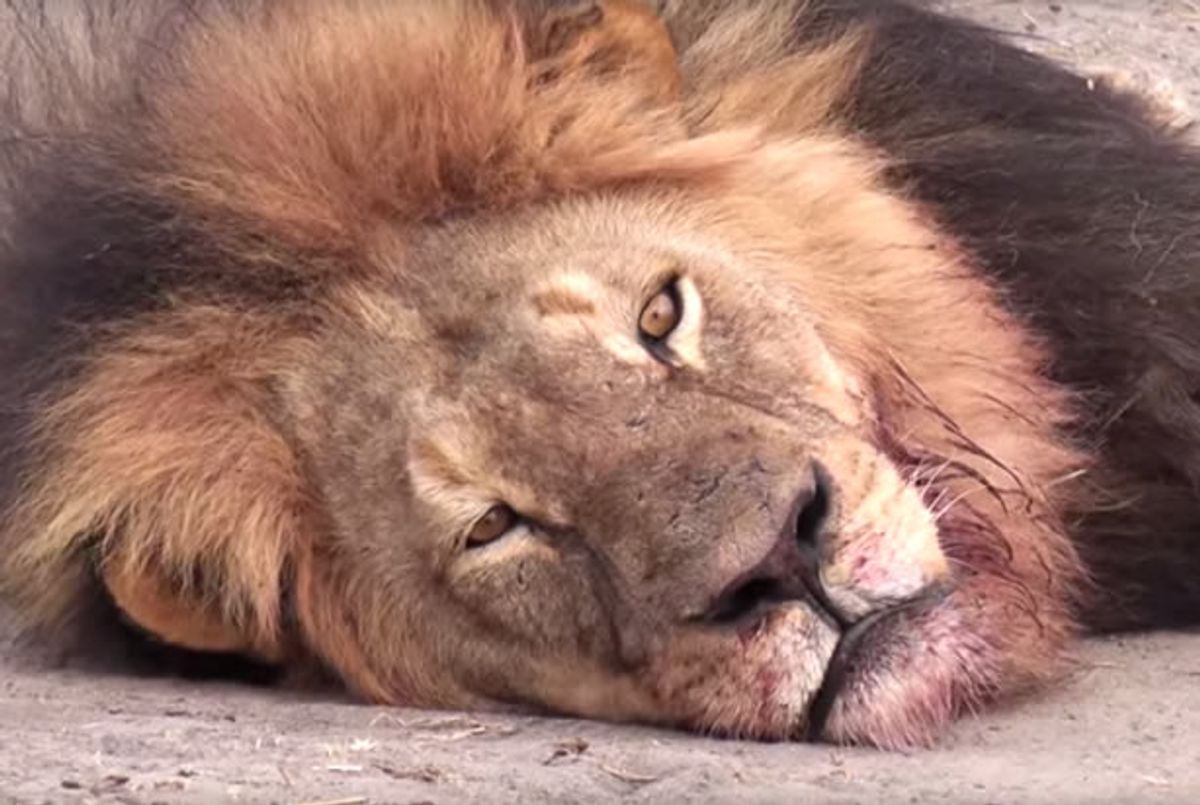As the ongoing controversy over the death of Cecil the lion last month in Zimbabwe, at the hands of American dentist Walter Palmer and his party, a few things seem beyond dispute. The dentist paid somewhere around $50,000 for privilege of killing a lion. The animal was lured out of Hwange National Park using live bait. He was shot with a bow and arrow and wounded. He was finished off with a rifle some forty hours later. He was skinned and his head was removed. And when the group realized that the animal was wearing a tracking device — because he was being studied by Oxford’s Wildlife Conservation Research Unit — the group tried to remove it. Palmer's safari guide Theo Bronkhorst is currently facing charges of poaching and will go to trial in September, and Zimbabwe’s Environment Minister Oppah Muchinguri has asked that Palmer 'be held accountable for his illegal action." The U.S. Fish and Wildlife Service also wishes to speak with him about the event. But when we speak about what happened to Cecil, what do we call it? Was he hunted? Or was he, in the words of Safari Operators Association of Zimbabwe head Emmanuel Fundira, murdered?
Speaking with NBC News late Tuesday, Fundira had strong words to describe the event. "We believe that the people who are the culprits lured Cecil outside the national park by… dragging that bait to an area where he was then murdered," he said. "And I say 'murdered' because that was not hunting." SOAZ describes its membership as "most reputable hunting, photo safari and other specialized tourism service providers operating in Zimbabwe," and that "All SOAZ members must be registered and licensed in accordance with current Zimbabwean legislation, and must employ only registered and licensed professional guides, hunters and couriers." It adds that "SOAZ also strongly urges visitors to report instances of unsatisfactory service or unethical conduct." Palmer's guide Theo Bronkhorst was suspended from the organization last week.
It stands to reason that a person in charge of a safari operators association is not exactly opposed to hunting, and Fundira is clear on his support of an industry he says adds $100 million to Zimbabwe's economy each year. But, he says, "As far as we are concerned, we uphold the highest levels of ethics in terms of hunting. We only want to promote what we call a 'fair chase' when we carry out hunting."
Last week, the Washington Post questioned whether Cecil had indeed been given "fair chase," putting the debate to Marc Moffett, a philosophy professor at The University of Texas at El Paso who specializes in the ethics of hunting. Though it is not illegal to bait lions, Moffett surmises that "The dentist himself was not really engaged. He’s sort of coming into a hunt where the groundwork has been laid for him. There has been a lot of baiting. Shooting an animal over bait with an advance bow … is not necessarily a difficult thing. So there are, I think, questions about whether that was genuinely a fair chase. He wasn’t himself doing the whole process. He wasn’t taking advantage of his skills, his knowledge of the animals and the environment, to coax this lion into a position where he could dispatch it in a careful way."
Yet there are those who say the death of a lion, even an ostensibly protected one like Cecil, is a good thing. Writing in the New York Times this week, doctoral student Goodwell Nzou says that "When I turned on the news and discovered that the messages were about a lion killed by an American dentist, the village boy inside me instinctively cheered: One lion fewer to menace families like mine."
But the words of Fundira and Moffett are persuasive. You don't have to be opposed to hunting, or claim an understanding of a complex ecosystem and economy that are vastly different than what most of us here in the U.S. experience, to believe that what happened to Cecil was just unethical and cowardly. Was it murder? No, but it sure as hell wasn't a true hunt either. It was the casual taking of a life. It was a killing, nothing more, nothing less. Just senseless death.

Shares